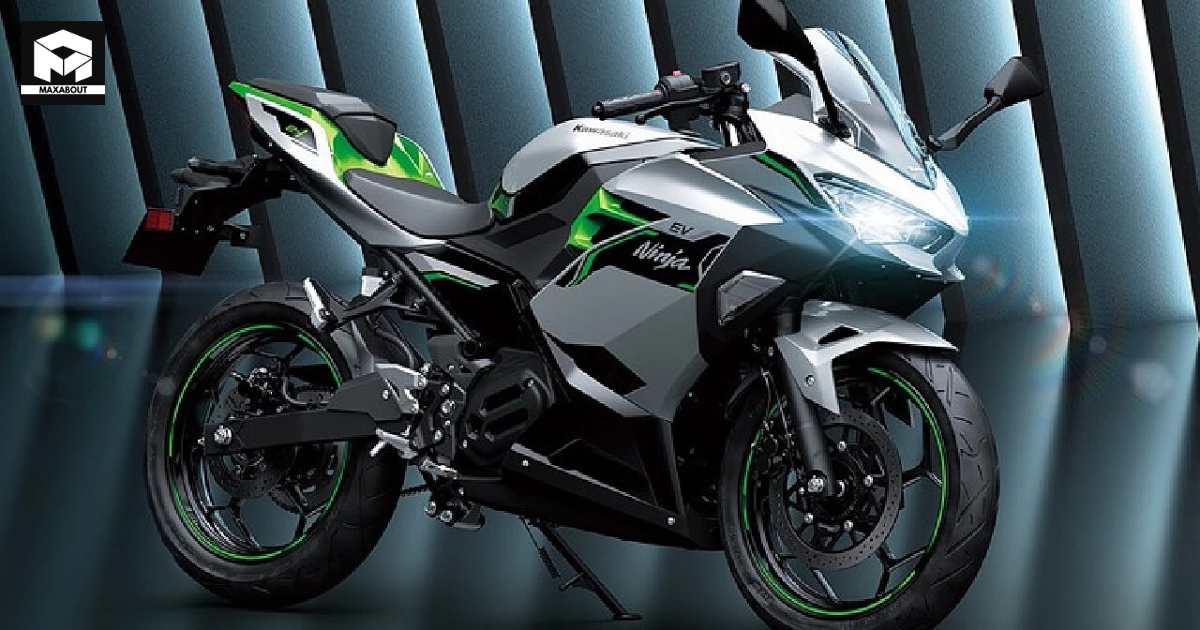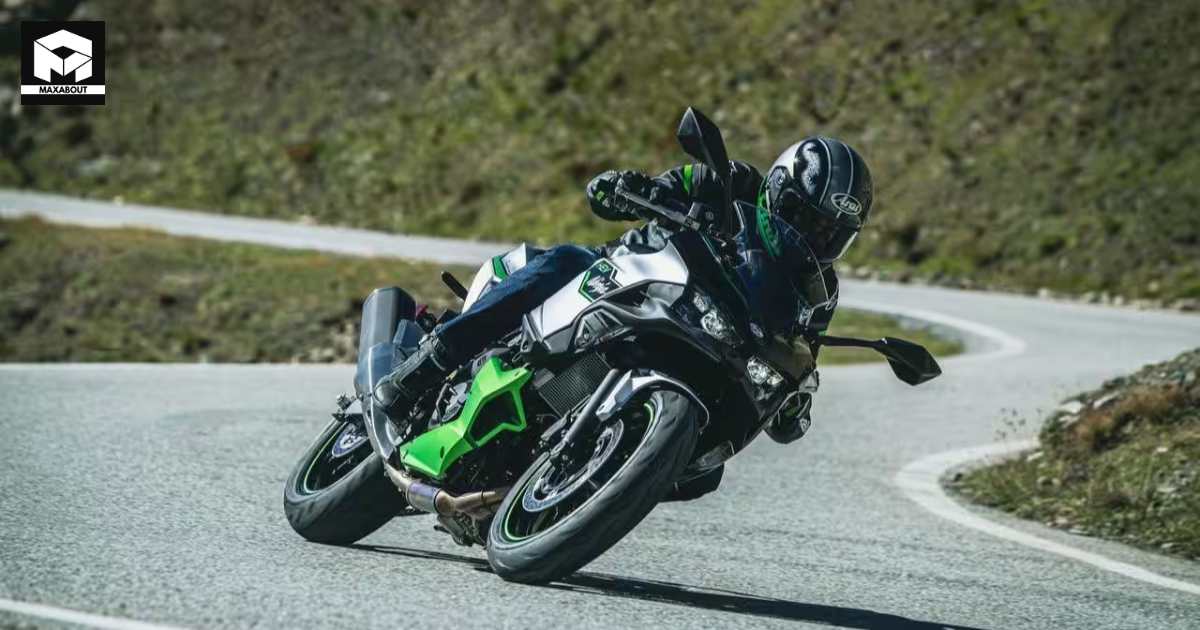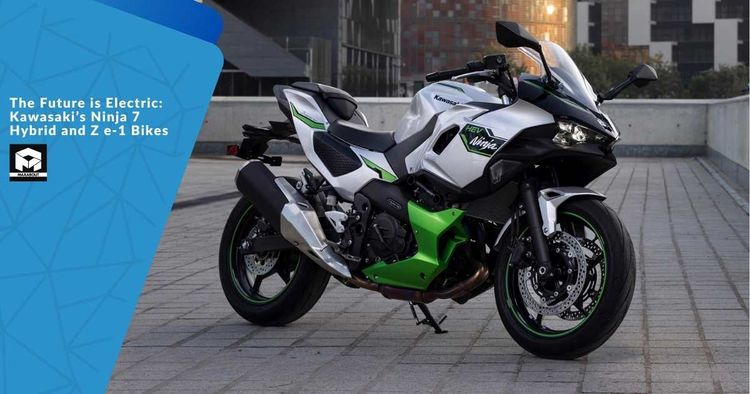Kawasaki is gearing up to electrify the Indian market with two groundbreaking models: the Ninja 7 Hybrid and the Z e-1 electric bike. It appears from recent Indian patent applications that Kawasaki intends to market these innovative cars to environmentally conscious riders.
The Ninja 7 Hybrid: A Blend of Power and Innovation
The Ninja 7 Hybrid stands out as Kawasaki's first hybrid motorcycle. It shares the 451cc parallel-twin engine with the Eliminator 500 and Ninja 500, both popular choices in India. However, the Ninja 7 Hybrid leaps forward by incorporating an electric motor boosting its combined peak power to 60hp.

One of the most intriguing features of the Ninja 7 Hybrid is the shift from a traditional clutch-gear shifter to shift paddles on the left-hand side switch cluster similar to Honda's DCT-gearbox bikes. Despite its hefty weight of 227kg, the bike maintains a rider-friendly seat height of 795mm ensuring comfortable footing for most riders.
The Z e-1 Electric Bike: Embracing Conventional Electric Mobility
While the Ninja 7 Hybrid explores new territories, the Z e-1 electric bike presents a more conventional approach to electric mobility. It's powered by two removable lithium-ion battery packs each with a 1.5kWh capacity. These batteries drive a motor that delivers 9kW of peak power and 5kW of continuous power.
The Z e-1 offers different riding modes, with a top speed of approximately 49mph (79kph) in Road mode and 35mph (56kph) in Eco mode. The Eco mode also boasts a claimed range of 72km which is quite reasonable considering the higher average speeds in European testing conditions. However, the charging time of 3.7 hours per pack, totaling 7.4 hours, might be a concern for some users.
Pricing and Market Position
The Ninja 7 Hybrid is expected to carry a premium price tag, potentially higher than the ZX-6R supersport in international markets. Similarly, the Z e-1's price might hover around the range of the Ninja 650. If these pricing strategies are replicated in India, Kawasaki will face stiff competition from local electric bike manufacturers like Tork Kratos R and Matter Aera.

As a component of its continuous endeavour to create inventive and environmentally friendly mobility solutions. With the Ninja 7 Hybrid and Z e-1, Kawasaki has achieved notable advancements in the hybrid and electric bike markets. To meet the changing demands of Indian riders, these bikes blend performance and environmental awareness.

